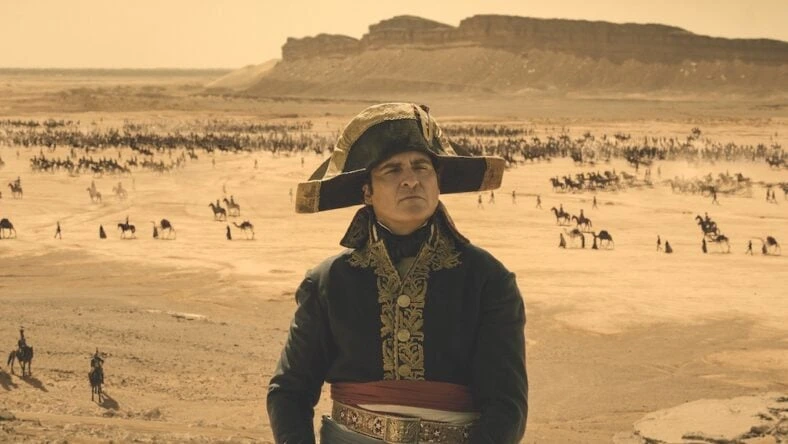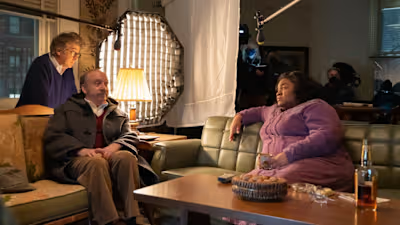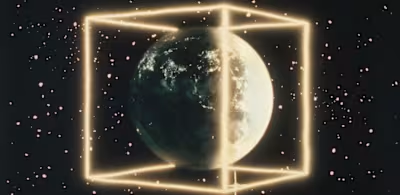Ridley Scott Q&A on Making Napoleon — the Story That Eluded His…
Like this project
Posted Nov 15, 2023
Ridley Scott interview about Napoleon, his relationship with Stanley Kubrick and William Friedkin, and telling a story Kubrick never could.
Likes
0
Views
11

Joaquin Phoenix stars as Napoleon Bonaparte in Apple Original Films and Columbia Pictures theatrical release of NAPOLEON. Photo Courtesy of Sony Pictures/Apple Original Films
Ridley Scott has shot enough action to know that too much of it is dull. With his new film Napoleon, he’s determined to keep viewers engaged: It’s an epic with astonishing battle scenes, shot practically. But whenever it’s about to veer too far into action, Scott shifts to Napoleon Bonaparte’s volatile relationship with Josephine de Beauharnais — then whips back to fighting. Too much love or war would be “bloody boring,” Scott says.
A longtime friend of Stanley Kubrick — at least over the phone — Scott has read the Napoleon script that Kubrick spent years trying unsuccessfully to shoot. With no disrespect to Kubrick, Scott’s approach is much different than that of the late 2001 and Clockwork Orange mastermind.
“I read Kubrick’s script, which is a birth-to-death version of Bonaparte. He would have done the whole nine yards and then cut it right back to what it needs to be,” Scott tells MovieMaker. “I don’t work that way. I try to have an internal vision about what makes this man so interesting. Sixty battles are extraordinary, but battles and action get boring. It’s got to be more than action. They have to temper and suit how important this enigmatic man was.”
Kubrick’s efforts weren’t a total loss: Steven Spielberg is developing the late director’s Napoleon ideas into a seven-part series for HBO. And Kubrick used some of his Napoleon research for his brilliant, devastating 1975 film Barry Lyndon.
Scott has always kept audiences guessing, from his tense 1977 feature debut The Duellists to the impossibly suspenseful 1979 Alien to the mind-melting 1982 Blade Runner. (Scott and star Harrison Ford, now 85 and 81, respectively, still don’t agree on whether Ford’s Rick Deckard is a man or a replicant.)
Scott’s last two films, released weeks apart in 2021, were The Last Duel, a kind of French medieval Rashomon, and the go-for-broke House of Gucci, which swings fearlessly from grotesque comedy to passionate melodrama. Of course his Napoleon isn’t staid.
When the director decided to make the film, he turned to Joaquin Phoenix, who he had cast at 25 for a standout role as the unstable Commodus in Scott’s 2000 film Gladiator, which won the Best Picture Oscar.
“Early on I said to Joaquin, ‘I’m doing this film about Napoleon Bonaparte,’ and there’s this long silence. And Joaquin is not big on words until he really gets turned on. Then he said, ‘And?’ I said, ‘Well, I was thinking about you. You look awfully like Bonaparte,’ says Scott.
Phoenix took the role, then worked with Scott to rewrite parts of David Scarpa’s script to better fit the director and actor’s vision for the movie.
“The higher end the actors you’re working with, the more opinions they’re going to have, and the strength of their opinion counts. That’s why you’ve cast them,” says Scott. “I feel my relationship with an actor of Joaquin’s level is a partnership.”
Starring opposite Phoenix’s French general and emperor is Vanessa Kirby as Josephine, the woman who inspired him to try to conquer the known world.
MovieMaker spoke with Scott about creating the most accurate version of Napoleon, his memories of the late Exorcist director William Friedkin, and his friendship with Kubrick, who contributed footage from his own The Shining to Blade Runner. Scott also told us how Gladiator 2 is coming along.
Joshua Encinias: William Friedkin said “the two most frightening moments in cinema are the murder of the Janet Leigh character in Psycho, and the chest-bursting scene in Alien.’’ What’s your fondest memory of him?
Ridley Scott: I was making Black Rain in Tokyo with Michael Douglas and my producers Sherry Lansing and Stanley Jaffe. We were talking about filmmakers and I said two of my favorites are Stanley Kubrick and this man William Friedkin. And Sherry said, “Oh, thank you, darling. I’m married to William.” I asked, “Is he crazy?” She said, “Well, that’s why I married him.”
Joshua Encinias: Napoleon is a huge undertaking about the relationship between Bonaparte and Josephine. Why is their complex relationship, to put it lightly, the essence of your story?
Ridley Scott: I had to keep asking the question, “Why Josephine?” What was Napoleon’s adoration of this woman? It’s got to move beyond just sex. That’s too simplistic, right? There’s some need he had that he saw in her. Initially, she wasn’t terribly impressed by this guy.
By today’s standards, he’d be classified as small. In those days, 5’7 wasn’t particularly small, but the English were brutally laconic and politically wicked by doing cartoons of Napoleon Bonaparte and always having huge men standing around him. They wanted to idolize the fact that he was tiny.
By the time Bonaparte was 30, he’d already entered the possibility of becoming the emperor of France. At that point, Josephine had unwittingly allowed herself to be seduced by this young lieutenant who grew fast into a general and just flew up the ranks. She paid attention to him, and if nothing else, there has to be a little bit of admiration on her part. But when the point came where they got married because they had to, it was a tragedy for Napoleon.
Joshua Encinias: Why?
Ridley Scott: He was an emperor, and it was tragic for her, too, because she had to produce an heir but she wasn’t able to. Without going into detail of her years as a courtesan, she probably had abortions. So she was incapable of having a child and they had to divorce.
That’s about halfway through the film. What continues afterwards is Napoleon’s still enamored and obsessed with Josephine, even though he’s remarried to the Princess of Austria. It’s a fascinating evolution and she missed him as well.
It was a really interesting, prolonged love story. I don’t want to say it’s a historic love story because that’s going to be bloody boring. I think it has everything I need, I hope, to elevate the story.
Ridley Scott on Stanley Kubrick
Joshua Encinias: What was your relationship like with Kubrick?
Ridley Scott: I got to know Stanley on the phone. I never met him. The first time we spoke was just after Alien was released. I was in my office, and someone said, “There’s a guy on the phone called Stanley,” I said, “Stanley who?” So he says, “Stanley Kubrick.” Come on!
Stanley Kubrick called me to say, “Hey, I just saw your film and I gotta ask you a question. How the hell did you get that thing to come out of his chest?” And I said, “Well, Stanley, I made a fiberglass glass chest and stuck it under the T-shirt, screwed it…” He interrupted and said, “Oh, OK — I got it, I got it.”
We started to chat and talk, and he said, “I couldn’t spot it in the cut.” I said, “I’ll get you some footage, you can roll it back and see the cut.” That began our connection. I can’t say it was a real in-depth relationship with Stanley.
Joshua Encinias: But it eventually led to his famous contribution to Blade Runner.
Ridley Scott: When I finished Blade Runner everybody was worried to death about it. I knew I’d made something really special. I knew that. But I knew when you make something special, frequently, you take a hit. I felt I was heading for the hit because everyone kept asking too many questions about cityspeak and why the characters live the way they do.
The people that were my — as it were — financers said you can’t make an ending where a man picks up a piece of origami as a unicorn, nods his head, walks into the elevator, and actually leaves with Rachael. I said, “Why not? It’s a film noir.” They said, “What is film noir?” I knew I was in deep trouble at that point.
They said we need to have a happy ending to test with. So I called up Stanley and said, “Hey, listen, I know you hate flying ever since Dr. Strangelove.” He became paranoid about flying — would not fly. He said, “True.” I said, “You must have done six weeks of helicopter footage for The Shining, right?”
He said, “True.” I said, “Listen, I need to borrow some footage of going up into the mountains to get away at the end of Blade Runner.” He said, “All right. I’ll send 17 hours of helicopter footage.” And so at the end of Blade Runner, when you see that vehicle driving away into the wilderness, that’s from The Shining. So that release was thanks to Stanley Kubrick.
Joshua Encinias: What’s your opinion of other movies that feature Napoleon?
Ridley Scott:I shouldn’t say this, but I will, this is what I think. I watched Waterloo starring Rod Steiger and something about it didn’t hold me together. The warring, the ranting, the anger didn’t work for me. I wasn’t interested in the character. There were glimpses of wondrous battle scene paintings that could have been stills, frankly, because the viewer is very outside of them.
Joshua Encinias: Historians have criticized you for comparing Napoleon with Hitler and Stalin. They say Hitler and Stalin only destroyed things, whereas Napoleon built things that still exist, like France’s legal system, the Légion d’Honneur, and more. Do you think their critique is valid?
Ridley Scott: No, I think that interview was taken completely out of context. The problem is that when you’re recorded, somebody tends to take excerpts from it and it’s so out of context that it sounds like a broad stroke. That Hitler quote is a terrible broad stroke. I was kind of quite angry about that.
Why do empire builders need those countries? You don’t need them. But they did. So you always have to ask the empire builders why. Why do you need the empire? You’ve got enough with what you’ve got. So there’s always that question which historically lies unanswered.
You have to admire Napoleon just for his sheer balls and courage and intuition. But on the other hand, when you look to the number of deaths that came about through his entire career, you’ve got to have another name for it as well. He’s certainly an enigma in European history.
Joshua Encinias: These are more than philosophical questions for you. You grew up under the specter of World War II.
Ridley Scott: I’m a war baby and I remember sitting under the stairs at night. London was an easy target so we were bombed every night. In the morning, we’d get up, and there would be a few houses missing on the street.
But this insane aggression… for what reason? We still haven’t quite fathomed, except that it was driven by a madman, right?
It’s always that question: If you’d done away with the madman, would the war have happened? I think [British Prime Minister Neville] Chamberlain was approached by MI5 or MI6, who said [Hitler] is going to be a big problem to Europe and the rest of the world. Chamberlain said, “I know that. What do you suggest?” And they said he should be done away with. And Chamberlain said, “Well, that is not gentlemanly.”
You look at the reality check of all these things and say: Should you do it sooner rather than later?
Ridley Scott on the Historical Accuracy of Napoleon
Joshua Encinias: How did you approach the wildly different historical narratives about Napoleon?
Ridley Scott: You have to try and find an accurate path to who this person might be. That’s what’s interesting about film, because you’re retelling something that hasn’t ever really been accurately explored.
The only thing about reading historical evolutions of whatever the narrative is, whoever the character is, it’s always a report of somebody else’s report about what they may have seen. What is sacrosanct? What is a given? What is absolute?
And of course, the more modern the history is, then the more absolute you can be. So there’s no mistake about who Adolf Hitler was. There’s no mistake about who Franco was. The further you go back, it gets a bit more difficult because it’s reports and hearsay.
Joshua Encinias: Finally, how do you feel about the work you completed on Gladiator 2 before actors went on strike?
Ridley Scott: In a word: I’m blown away. I’ve already cut together what we shot because I cut as I go. I saw an hour and forty-five minutes of it last week and I was actually blown away. I’m very, very happy. Paul Mescal, Pedro Pascal… very interesting.
Napoleon arrives in theaters November 22 from Sony Pictures Releasing and will stream soon on Apple TV+.
Main image: Joaquin Phoenix stars as Napoleon Bonaparte in Apple Original Films and Columbia Pictures theatrical release of Napoleon. Photo Courtesy of Sony Pictures/Apple Original Films
Editor’s Note: Corrects byline.
Share:





